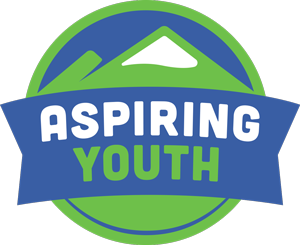Social networking has become a big part of how we keep in contact with family and friends. It allows us to share ideas and connect with people. Given that the cyber world can also be daunting, parents tend to breathe a sigh of relief when their teen has little interest in creating a Facebook account.
 My brother, who will be 14 years old soon, likes Minecraft and Legos and learning about planets. Facebook isn’t near the top of his interests list. What would someone who avoids social interactions and prefers to spend his time alone get out of creating a Facebook account? Actually, a lot.
My brother, who will be 14 years old soon, likes Minecraft and Legos and learning about planets. Facebook isn’t near the top of his interests list. What would someone who avoids social interactions and prefers to spend his time alone get out of creating a Facebook account? Actually, a lot.
He’s missing out on being a part of our family Facebook page and messaging with our grandma. He doesn’t get the opportunity to connect with peers from his school, which is one way adolescents form connections with one another. Social networking has become a critical component of teen and young adult social life.
Yes: it can be scary thinking that our teen is going to be joining the online social world. Especially those who already have a difficult time navigating social environments. So how can we be sure that our teen knows how to safely and effectively interact online?
Teaching the hidden rules of social networking, from The Hidden Curriculum (Myles, Trautman, & Schelvan, 2013).
Social networking comes with a whole set of hidden rules. They may seem obvious to us, but keep in mind that our teens may need them explicitly taught them – just like we teach appropriate social skills in situations like school and in public Have your teen develop a list of safe behaviors online to understand his or her knowledge.
Safety
-
Only connect with friends you know and trust
-
Keep personal information private or do no include it
-
Never agree to meet up with someone from the Internet without talking to your parents about it first
-
Do not talk to people online whom you do not know
Social interactions
-
Your social media connections can see eveyrthing you post
-
Don’t post anything if you are feeling angry, upset, sad or overwhelmed. Wait until you’ve calmed down to post something, think carefully and have a parent or trusted adult read it beforehand
-
A Facebook friend is not necessarily a real friend
-
Online posts can never be taken back – even if you delete it, it can be saved by others.
Social media is just one aspect of social interactions that can be important. Be sure to discuss the risks and benefits of social media with your teen and encourage him or her to safely connect with others online if you think its right for your teen.
Breea. M. Rosas, B.A., Ed. S. Candidate
Breea graduated from Central Washington University with a Bachelor of Arts in 2013. Her undergraduate major was Psychology, with a minor in Family Studies. She completed the coursework for an Educational Specialist degree in School Psychology in Spring 2015, with an anticipated graduation date of Spring 2016 upon the completion of an internship with the Franklin Pierce School District. Professionally, Breea has worked with Aspiring Youth as a lead facilitator for summer camp and served on the curriculum development team. Additionally, Breea has experience working with adults of varying abilities, including autism spectrum disorder, as well youth in the school setting.


Leave A Comment
You must be logged in to post a comment.